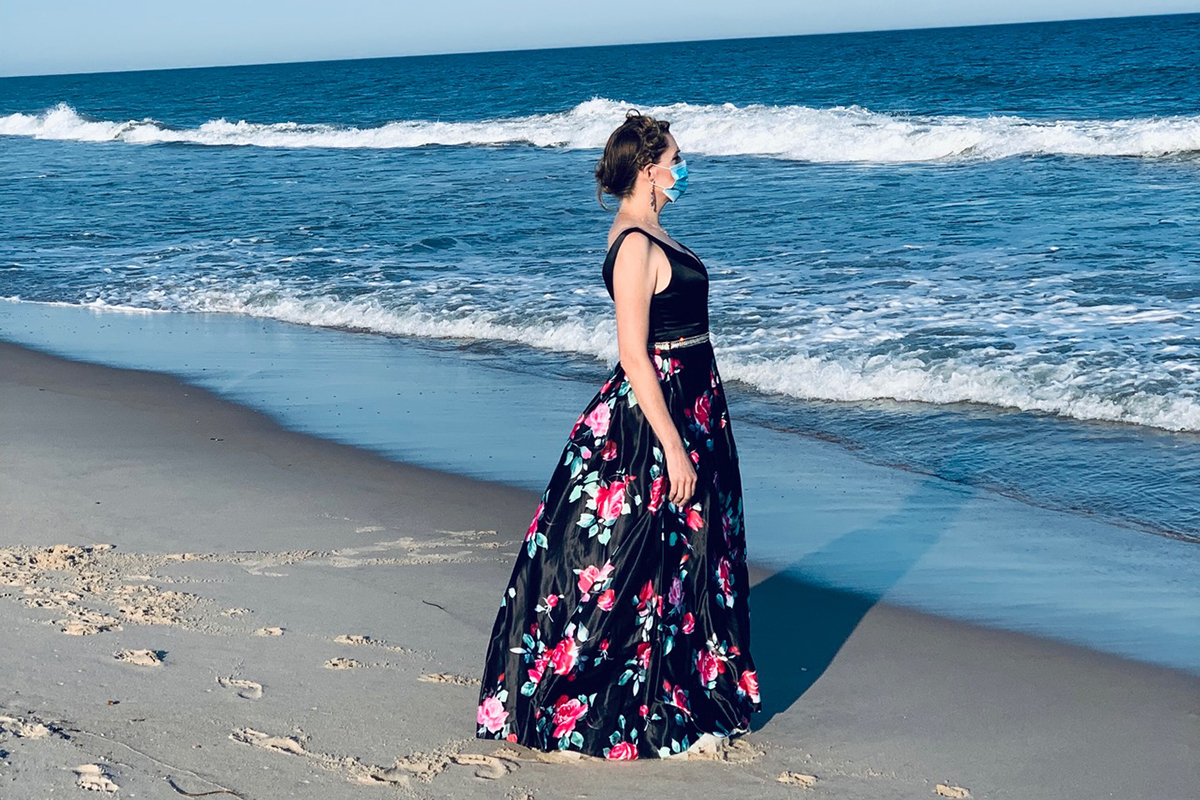I’ll be honest: I’m not really an opera person.
Until this weekend, I assumed opera consisted of people in fancy outfits belting overwrought, angst-ridden songs in foreign languages before dying on stage. And while I’m terribly impressed by the skill and talent required to fine-tune the operatic “instrument,” I am not the most qualified person to write a review of Jean-Philippe Rameau’s Sympathy, the latest production by Victory Hall Opera.
But Charlottesville-based VHO is a company for people who don’t go to the opera. Actually, it’s for newbies and veterans alike, which explains how I wound up having this conversation with a stranger during intermission: “French Baroque shows are very unusual. You rarely see them performed,” said a bespectacled man who stood next to me. “I drove all the way down from Maryland to see this.”
Sympathy
The Haven
November 3
Though it may be lost on certain locals (cough), VHO is an anomaly in the opera world, drawing top talent from across the planet with its distinctive model of ensemble-led “indie opera for the people.” Miriam Gordon-Stewart, the director of Sympathy, is not only a co-founder and artistic director of the opera, but an internationally recognized singer as well.
Sympathy itself is a remarkable show. As Brenda Patterson, VHO’s director of music, writes in the playbill, “we believe these are the first professionally staged performances of [Jean-Philippe Rameau’s La Sympathie] since it was written in 1751.”
Can you imagine? A Baroque opera writer composes a whimsical story to celebrate the birth of a duke…and it pops up in Charlottesville, 266 years later.
“You rarely see this period on stage,” explained my compatriot, “because 18th- century French is difficult. It requires specialized singers. You know, ones who can make the words sound like clouds floating across the sky.”
Though cumulus aesthetic is lost on me, I was aware that the singers are excellent, and the entire show feels relevant, interesting and—dare I say it?—entertaining.
Sympathy tells the story of Céphise, the female half of a picture-perfect couple, who doubles down on her commitment to her partner, Acante, after realizing she’s attracted to their neighbor, Génie. Céphise and Acante seek the help of Zirphile, a celebrity therapist and relationship healer, who casts a spell that causes each to feel the emotions, and echo the movements, of the other. Hilarity, frustration and self-realization ensue.
In VHO’s clever retelling, Céphise and Acante wear matching footie pajamas and trot around town in unison, locked in their devotion to farmers markets, mindful eating and each other. But when Acante isn’t looking, Céphise dives outside for a cigarette. Clearly, she’s stifled and ready for sin. Then her neighbor offers her a handful of potato chips and all bets are off.
The show itself is short, which was a welcome surprise for this impatient viewer. Though plot twists didn’t unfold as quickly as I hoped, the pacing allowed me to slow down and appreciate art constructed for audiences more than 250 years ago.
Gordon-Stewart’s direction uses physical comedy to fill in the blanks between and during songs. Even the translation of Rameau’s lyrics, cast on a projection screen, are brief and quippy. (I doubt that Génie’s prayers literally translate to “I’m a son of God like you, I know how to man up,” but that’s what VHO gives us.)
Clever props, contemporary costumes and colorful murals paint an ultra-modern picture of guru worship, romantic obsession and a Whole Foods-fueled quest for moral purity that strangles authentic happiness.
I especially liked the ensemble—all talented singers in their own right—acting as vocal observers of the central love triangle. Some even wore Acante and Génie shirts. Watching both sides cheer its respective hero, I was reminded of shows like “The Bachelor” and “The Voice,” where the intimate passion of strangers becomes a spectator sport. Hilarious yet disturbing, no?
Rachelle Durkin, who plays Céphise, walks a wonderful line between independent lady and guilt-ridden, empathic lover.
Though I struggled to hear him consistently, Ted Schmitz’s Acante nailed the look and energy of That Well-Meaning Yet Navel-Gazing Boyfriend Who Loves You But Refuses to Ask Directions When You’re Clearly Lost.
Jorell Williams, who plays Génie, has a voice and presence that’s powerful and truly moving. (I was Team Génie, obviously.)
Sarah Wolfson, playing self-aware sexpot-slash-relationship coach Zirphile, relishes her rising fame with polished expectation and enough gusto.
And I really loved the comedic timing of Patterson, who used her few lines as The Grand Priestess to enliven a lagging second act.
Throughout Sympathy, a chorus of hip-hop dancers—the Forte Dance Crew—appear in casual street clothes to underscore emotional turbulence between characters. Not only did Maria Daniel’s choreography expand the storytelling (and my brain), it gave me a chance to soak up the beauty of the music, performed by ensemble-in-residence the Early Music Access Project, and expertly conducted by Christine Brandes.
I walked away from Sympathy feeling a little confused. Not just because the end surprised me, or because I kept wondering what Rameau’s lyrics actually said, but because when you’re a goldfish peering outside the bowl, you become dimly aware that an entire world exists beyond what you can see. I may never become a hardcore opera fan, but VHO has officially opened my eyes—and allowed me to enjoy the experience.


